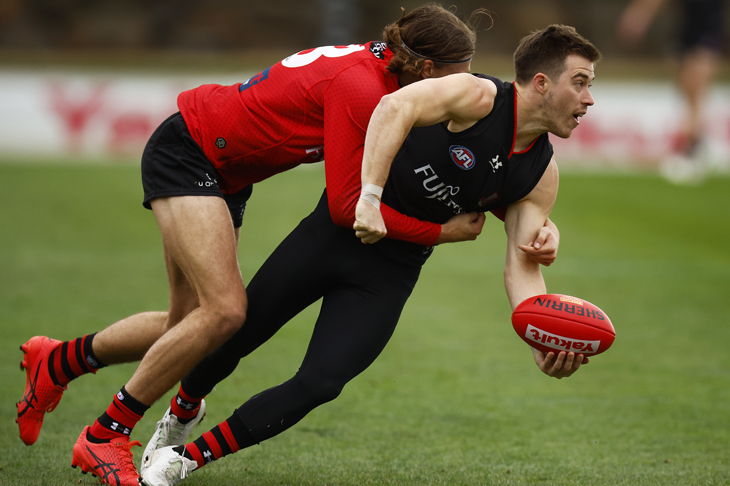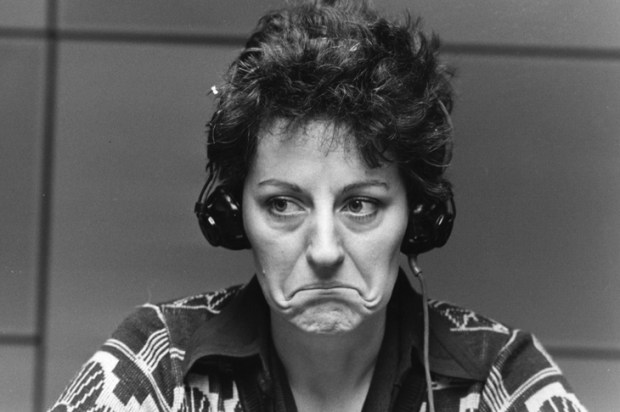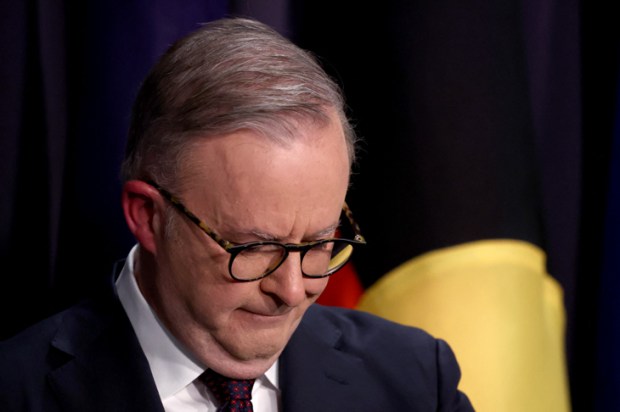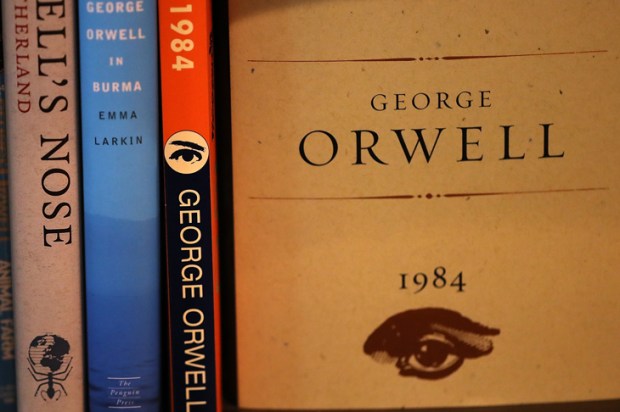I have barracked for the Essendon football team since I was a youngster. Amongst the mementos of my childhood days is a collection of football cards featuring the champion players of the era – Barry Davis, Russell Blew, Jack Clarke and Ken Fraser. I have continued to follow the Bombers over the decades, during years of victory and times of defeat – including through the so-called ‘supplements saga’.
Australians have embraced footy players from all backgrounds, ethnicities and faiths. Like the millions of others who follow the game, my interest is in the skills of the players and their values of courage, perseverance, sportsmanship and humility. The latter quality often seems lost in the modern game, but footy fans continue to respect the players who are not only skilful, but modest. Witness the reception of the newly retired Geelong captain, Joel Selwood after this year’s grand final.
When Sir Donald Bradman was inducted as the first member of the Sports Australia Hall of Fame, he said: ‘When considering the stature of an athlete, or for that matter any person, I set great store in certain qualities, which I believe are essential in addition to skill. They are that the person conducts his or her life with dignity, with integrity, and most of all with modesty. These are entirely compatible with being proud, having ambition and striving to compete. I love to see people with personality and character, but I resent utterly the philosophy of those misguided people who think that arrogance is a virtue. It is only endured by the public – not enjoyed.’
How many of us who – reluctantly – continue to cheer on Nick Kyrios, wish he would grow up and display greater sportsmanship and humility?
The recent treatment by Essendon of its newly selected CEO Andrew Thorburn by the club’s board reveals a new ugliness in Australian society. Effectively, Thorburn was sacked because he retained a governance role in a Christian church, a pastor of which had made some statements supporting orthodox Christian views about abortion and marriage in a 2013 sermon found on the church’s website. There are hundreds of sermons and resources on the website – many of them podcasts that would require hours of listening to find the passages in question. Either the sports journalist who wrote the initial story – or more likely someone else – trolled through these resources to find the couple of sentences complained about. Mr Thorburn was given an ultimatum by the club – leave your church or lose your job. Where was the due process, let alone respect for freedom of association and religion? Despite his religious affiliations, Thorburn had led a major bank which had supported diversity programs, including the AFL’s ‘Pride’ matches.
Instead, the Essendon Board effectively sacked Thorburn. The stated explanation was appalling: ‘I want to stress that neither the board nor Andrew was aware of the comments from the 2013 sermon until we read about them this morning,’ said the chairman of the club, David Barham. The chairman conceded that it would have been unlawful to ask Thorburn about his religious views prior to employing him, but acted once he subsequently became aware of the sermons. Apparently, these religious views had not precluded Mr Thorburn from leading the external review of the club’s football department, including the search for a new chief executive!
Sectarianism was rife in Australia a century ago. I recall my father, who was born in 1911, telling me about the fights between Catholic and Protestant schoolchildren in the small country town when he was growing-up. It was an attitude my parents – one Catholic, the other Anglican – had rejected when they married in 1949. Their union was opposed by their respective families. As children, we were brought up to judge people by their character and actions, not their religious, ethnic or other beliefs. Sectarianism has never fully disappeared, but it retreated significantly after World War II. Regrettably, it has re-emerged in the past decade, the consequence in part of the neo-Marxist influence in our education system and which has now spread to most levels of the public, professional and corporate sectors. So-called ‘wokeism’ exposes the new intolerance. It is no surprise that this culture has spread to big sport, including the AFL, as the governing bodies are filled with executives from corporations where the culture is rife. The ‘diversity’ that the AFL preaches is highly selective. The Essendon saga starkly displays a totalitarian impulse and a new intolerance, especially towards Christians.
One of the foundations of the liberal, plural polity which we have been fortunate to inherit is being undermined by the new totalitarians. Three centuries ago, philosophers like John Locke sought to define the limits of political power in relation to beliefs. In his 1689 Letter Concerning Toleration, Locke sought to distinguish the business of civil government from that of religion. Written at a time when controversy surrounded the idea that Catholics should be able to practise their religion in Protestant England, or Jews or Muslims enjoy religious freedom in a Christian nation, Locke argued that the state and the church had separate functions. He sought to find ways that people of different religious beliefs could live together.
As the late Jonathan Sacks wrote, toleration ‘aims not so much at truth but at peace. It is a political necessity not a religious imperative, and it arises when people have lived through the alternative: the war of all against all.’ Hence the political separation of faith and power; of church and state. In Thomas Jefferson’s words, ‘no person shall be compelled to support any religious worship, but all persons shall be free to profess their religious opinions.’ This separation does not resolve religious differences, including with those who have no religious belief. The state allows diversity of opinion, belief and practice in the name of national peace and societal harmony, not of religious preference.
As Sacks cautioned, ‘when political liberalism is combined with moral relativism it reconnects morality and politics, they very thing liberalism is supposed to avoid.’ Religious belief is now swept into the political realm, as evidenced by the gratuitous interventions of the Victorian premier. Rather than employing rhetoric to unite and heal, the premier’s words provided a salve for the bigoted and intolerant who hide behind their woke agenda; and have given licence to authoritarian overreach. Why doesn’t the premier’s verdict of guilt by association for Mr Thorburn also apply to himself, who claims to be a Catholic?
I doubt the Essendon board understood what it was wading into when it hastily dispatched Andrew Thorburn; rather it was an unthinking application of the zeitgeist. Its actions demonstrate just how much the pillar of toleration has been eroded in western civilisation. This path leads back to the ‘war of all against all’.
Got something to add? Join the discussion and comment below.
Get 10 issues for just $10
Subscribe to The Spectator Australia today for the next 10 magazine issues, plus full online access, for just $10.
You might disagree with half of it, but you’ll enjoy reading all of it. Try your first month for free, then just $2 a week for the remainder of your first year.














Comments
Don't miss out
Join the conversation with other Spectator Australia readers. Subscribe to leave a comment.
SUBSCRIBEAlready a subscriber? Log in